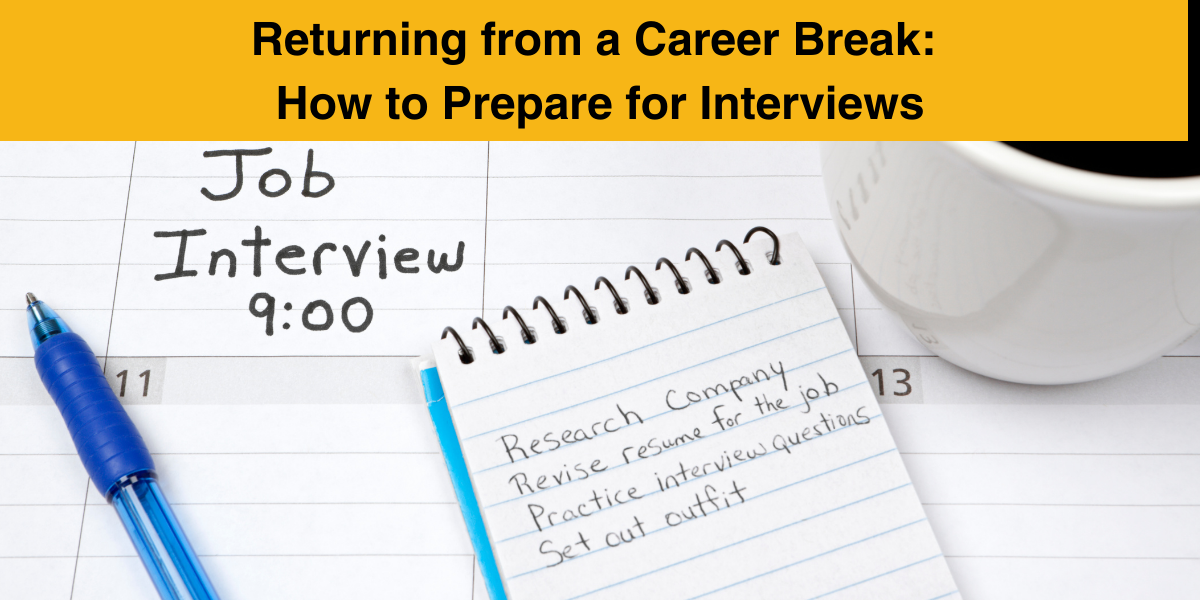Returning from a career break- How to prepare for Interviews
Returning to work after a career break can be a daunting task. This can lead to apprehensions in women who aspire to rebuild their careers post a break. Voicing their concerns gets difficult and their minds can be bogged down with queries like
“What if I cannot answer about the latest happenings in my field?”
“I may have forgotten many things about my work. I can never compete with today’s generation in my job search.”
This Mother’s Day, we got an opportunity to interact with two mothers who are successfully placed with the recruitment team of FlexiBees- a company dedicated to helping mothers to return to work after a break. Ruchika and Pranoti are successful career returnees themselves and they shared their insights on “How can Women Prepare for Interviews after a Career Break”.
Pranoti Nayar has been working with FlexiBees as an Insights manager, before FlexiBees. Pranoti worked in Marketing Research on the agency side and has worked with leading organizations in India, USA, and United Kingdom. She has done a Post Graduate Program in Marketing.
Ruchika, a Recruitment Manager with FlexiBees is a mother of a 7-year-old girl, a traveler, a runner, an avid reader, and also into yoga. She is armed with an MBA degree and has a passion for recruitment, having experience working in various corporates for the last eight years.
Both Ruchika and Pranoti have over the years witnessed the returnship journey of a lot of women post a career break, across roles and functions. They have been instrumental in providing help and guidance as and when needed to these aspiring women on their journey.
All about the Job
One of the most common questions that a woman asks is, how can she prepare for an interview after a long time?
“Go through the Job Description in Detail”
Ruchika shares that the first and foremost when one appears for an interview after a long time is that they should go through the job description in detail, and study the requirement that the client has for the role on offer. Get in touch with colleagues or friends who work in similar profiles and get help in anticipating the questions that could be put across. These questions could also be per their functional areas. Rehearsing the answers and jotting the points helps.
“Update and familiarize yourself with your resume”
Ruchika emphasizes updating and familiarizing oneself with their resume as it helps in dealing with an interview. Highlight the skills that they are comfortable with and do not focus on the skills that one does not wish to pursue further in the career path.
Do your homework
Highlight the skill set required for the role, and talk about the expertise that is being brought across. How that matches the requirement of the role in question and adds to the objectives and growth of the company. Study the mission and vision value of the client and tailor the answer to that. One can also elaborate on the work model like flexible or remote that is on offer and how it fits perfectly their needs and how they will be able to do justice to it as a professional.
“Study about the company, and the products”
Familiarizing with the company and its products helps a lot, one can also go through the hierarchy of the firm and visit its LinkedIn page to know more about them. One can list a few questions that can be posed later towards the end of the interview to understand the role better.
Women going back to work post a career break would have garnered a lot of experience through the years, so how does she encompass it all when she is asked
All About You
“Tell me something about yourself?”
According to Ruchika, there are some basic rules that she shares,
She suggests keeping it simple and sharing basics like name and location. Share the skills, any roles that one has worked on, and some upskilling like certifications that are done. A small mention of one's strengths can also be looked into.
One doesn’t need to go into a lot of personal details, like parents and their professions.
One needs to keep it short as during the interview one can touch base with a few more things in detail.
The next common question that one faces is “Why do you want to apply for this role?”
“Do your homework and analyze the JD with a Hawks' eye”
Highlight the skill set required for the role, and talk about the expertise that is being brought across. How that matches the requirement of the role in question and adds to the objectives and growth of the company. Study the mission and vision value of the client and tailor the answer to that. One can also elaborate on the work model like flexible or remote that is on offer and how it fits perfectly their needs and how they will be able to do justice to it as a professional.
Getting ready for the D-Day
Another aspect that has become common with interviews these post-pandemic times is video interviews.
Are there any specific preparations that are required for a Video interview?
“Try to Schedule the interview at a time when you have complete quiet time”
Pranoti says that scheduling the video interview at a time when one is least expected to be disturbed helps, if not then one can instruct the household about the timing and the fact that one cannot be disturbed at that point, it can also be done by pasting a not on the door.
“Do a dry run of the platform on which the interview has to be held”
Pranoti emphasizes the need to do a dry run on the platform, even if one is used to a particular platform be it Google meets or zoom, doing a dry run certainly helps and avoids last-minute panic. Logging in a few mins in advance and being prepared is a plus. Also, it's very important to be groomed for the interview even if one is logging in from home, as dressing up for an interview will help one feel confident.
The non-verbal cues are easier to get across in an in-person meeting but in a video interview, it might be difficult so it’s always better to rehearse a few lines to make sure that the points that are put across are having the desired impact.
Getting these basics in place will help to navigate the perps required for an interview, and help you get there. So shed all possible inhibitions you have when it comes to interviews and build the confidence to crack them.
But apart from interviews, there is a lot more that goes into the preparation when it comes to returnship.
The blog that follows will delve into aspects like the break in the career, the support that is needed, and an insight into the thought process from the employer's end that goes into hiring a career returnee.

